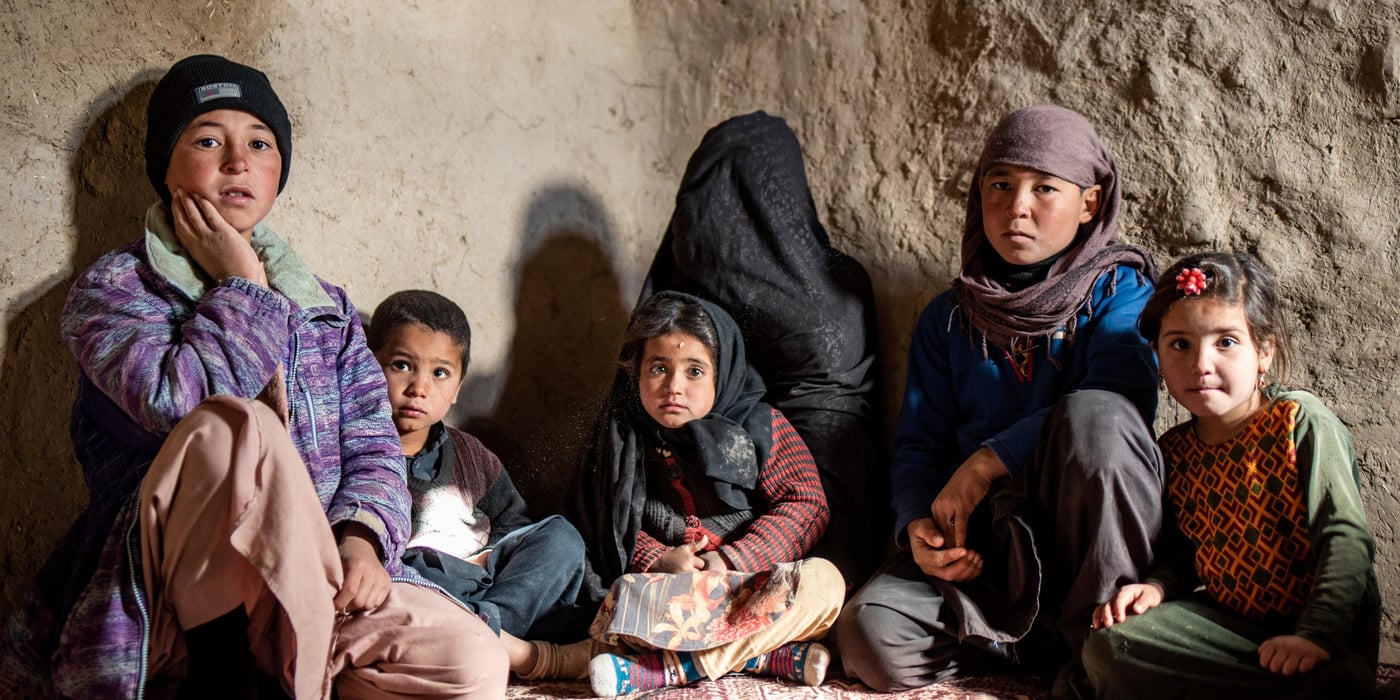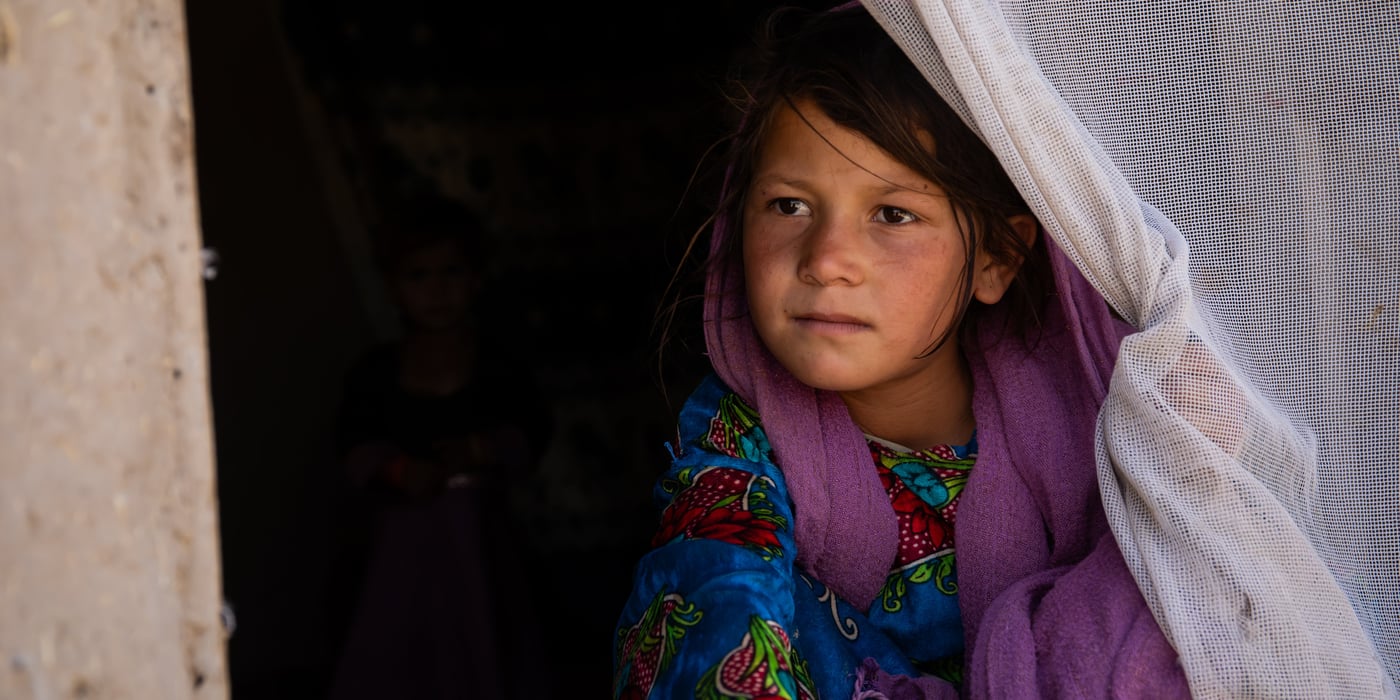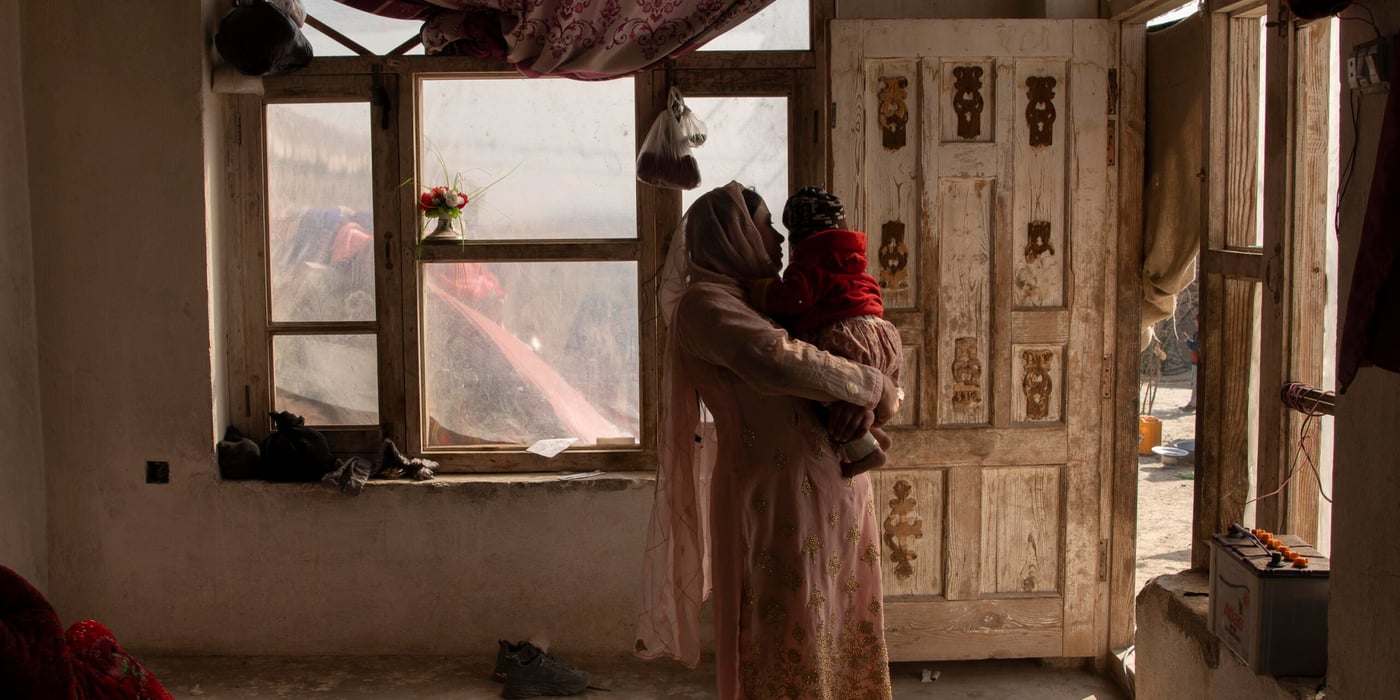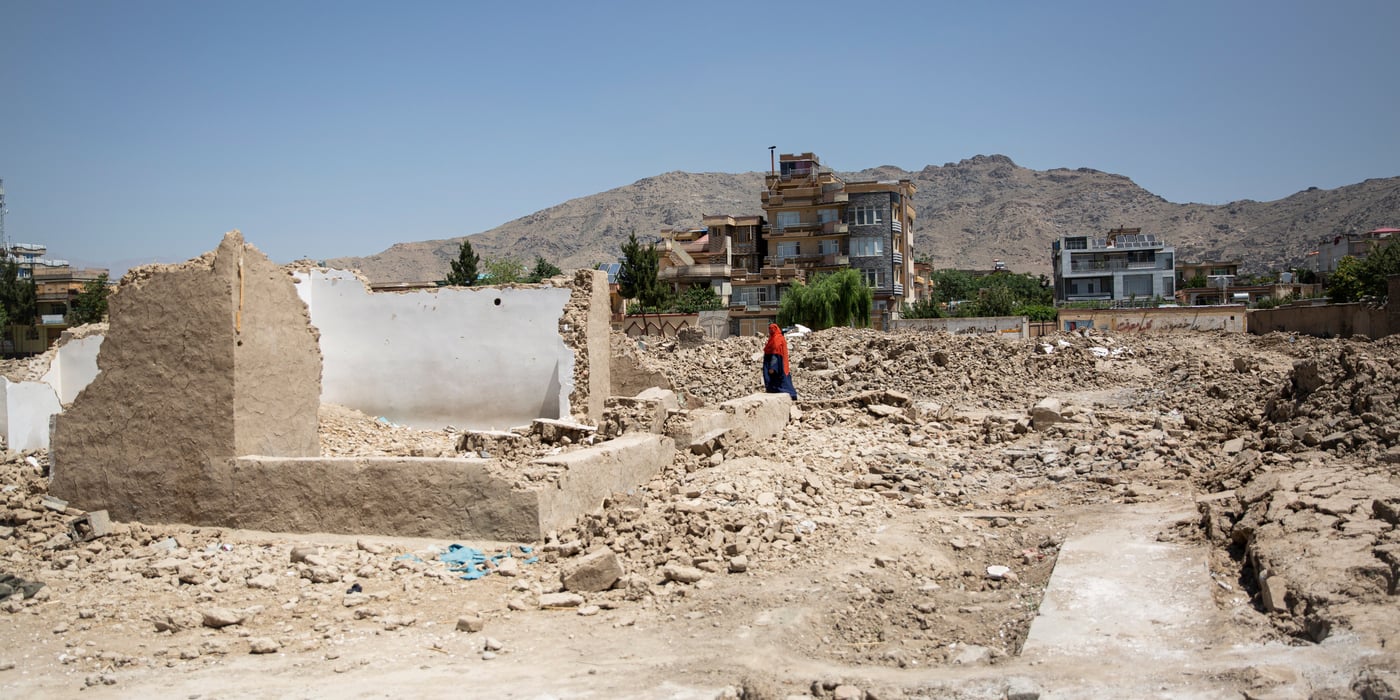
"In the midst of another harsh Afghan winter approximately twenty thousand displaced people have been evicted from their homes in Badghis province by Taliban authorities. Many now have no food to feed their children and no way of keeping warm as temperatures drop below zero,” said Neil Turner, NRC's country director in Afghanistan.
"The Badghis authorities must recognize that they have responsibilities towards the population. It is essential that authorities ensure families have shelter and are able to support themselves before undertaking any further evictions; and should also assist those already evicted."
Previous decades of fighting, and more recently drought, have forced thousands of families to flee their homes in the rural areas of Badghis and seek out safety and humanitarian support in the capital, Qala-e-Naw. They have eked out an existence on the city's outskirts, relying on haphazard combinations of humanitarian assistance and manual labour.
The authorities in Badghis have insisted these families return to their original homes and that the settlements are dismantled. However, many have no homes in their villages of origin and in the current economic situation it will be difficult for them to find work and survive there. NRC’s Camp Management team in Afghanistan has confirmed that just under 20,000 people have been evicted in the past weeks.
“We put all our belongings on two donkeys and walked all the way here. We arrived almost at midnight the day we were evicted. It was very cold that day. We spent five to six years in that settlement and now we have come here, and we don’t have anywhere to live. Almost all of my six kids have become sick. We have nothing to eat and there is no one to support us. The local people here already have their own financial issues,” said a widow who was evicted from her home in Qala-e-Naw to her village of origin in Badghis province.
Months of negotiations with the humanitarian community and small-scale pilot returns processes have failed to convince the authorities to follow a slower and more sustainable returns process. Instead, the displaced families have been forced to leave. NRC has launched an emergency response to provide humanitarian support in the form of cash grants and essential items to families on the move in Badghis province.
"All further evictions must be halted until the Taliban authorities, with the support of the international and humanitarian communities, have found long-term solutions for highly vulnerable displaced communities," said Turner.
Facts and Figures:
- NRC’s camp management teams estimate that some 2 million internally displaced people live in over 1,000 large sprawling slum-like informal settlements across almost 30 provinces in Afghanistan, usually in appalling conditions and often highly dependent on humanitarian aid to supplement meagre earnings.
- In Qala-e-Naw, Badghis Province, Afghanistan, there were 8 informal settlements, home to approximately 2,800 families (just under 20,000 individuals). All of these settlements have now been demolished.
- Last week, the Taliban authorities conducted a survey of the settlements to register all families, but reportedly did not register female headed households (187 households in total), raising concerns that they will be left off the list for future support in their areas of origin.
- A small-scale pilot returns process was initiated in Badgis in June this year for 260 families and was supported by the humanitarian community. However, serious concerns have been raised over the sustainability and modality of these returns given the poor level of basic infrastructure and ongoing drought in rural areas, as well as the use of cash incentives.
- The Taliban authorities are bound by obligations under international law including against forced evictions. In this regard, for an eviction to meet international standards and not become a forced eviction, authorities must comply with several principles, including obligations after an eviction has occurred. Namely that people must not be left homeless or living in inadequate housing after an eviction.
- The latest humanitarian response plan (HRP) highlights that Afghanistan remains one of the world’s worst humanitarian crises. Two-thirds of Afghanistan’s population will be in need of humanitarian assistance in 2023 as the country enters its third consecutive year of drought-like conditions and the second year of crippling economic decline, all the while still reeling from the after-effects of decades of conflict and recurrent natural disasters.
- The HRP estimated that a record 28.3 million people will need humanitarian and protection assistance in 2023 in Afghanistan, up from 24.4 million in 2022 and 18.4 million in 2021.
- A recent report by UNDP indicates that the formal economy in Afghanistan lost US$5 billion after August 2021 and is on a declining trajectory. Afghanistan lost in 12 months what had taken 10 years to accumulate.
Notes for editors:
- Photos of the situation in Badghis are available to download and use for free here.
- B-roll showing the situation in Badghis are available for use here.
For more information or to arrange an interview, please contact:
- Christian Jepsen, Regional Communications Adviser: christian.jepsen@nrc.no, +254 706 248 391 (WhatsApp)
- Becky Roby, Afghanistan Advocacy Manager: becky.roby@nrc.no, +93 (0)799797746 (WhatsApp) / +93 (0)708827374
- NRC global media hotline: +47 905 62 329, media@nrc.no




